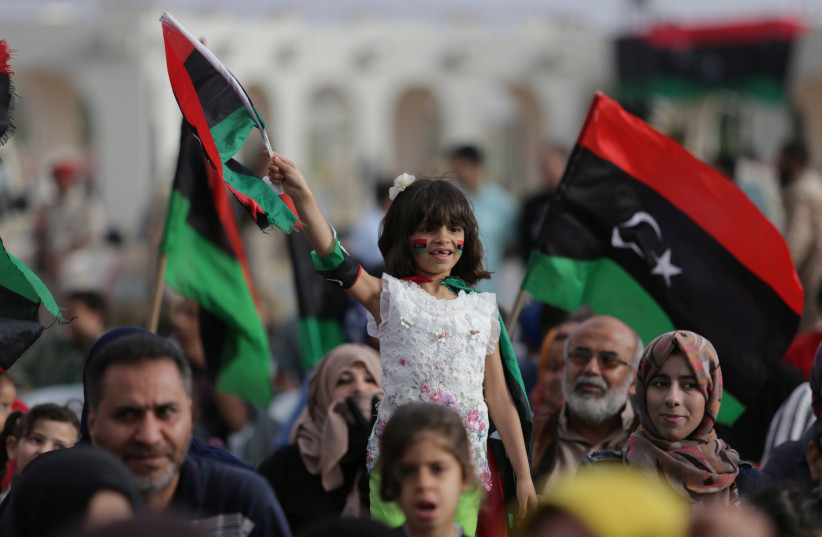There are calls for Libya’s Prime Minister Abdel Hamid Dbeibah to hand over power, Al-Ain media in the UAE reported this week.
In contrast, an article in New Lines Magazine notes that a rival administration led by Fathi Bashagha has “since March has unsuccessfully attempted three times to seize power in Tripoli.”
This is the latest struggle for control of Tripoli after the country has suffered a decade of conflict and civil war.
<span style="background-color: #fbeeb8;"><br></span>Who controls what in Libya
Western Libya is controlled by the Egyptian-backed Khalifa Haftar. Over the last several years Ankara has also attempted to play a greater role in Libyan affairs. This has also drawn Egypt and Greece closer together. Russia also plays a role in Western Libya. And what happens in Libya affects Tunisia and the wider region. It is not a simple story, and despite most media portraying one side as good and the other side as bad, the overall context is that Libya matters to a variety of powerful countries and players.

Meanwhile, in Al-Ain media, which is more partial to Bashagha, the article says that “Libya is witnessing a political crisis that has intensified recently after Dbeibah insisted not to comply with the country's parliament's decision, which relieved him of his post after failing to hold elections and appointed Fathi Bashagha to head a new government.”
<br>Western intitiatives
The factions in Libya are looking to the UN and also Cairo to see if they can come to some kind of agreement and hold elections.
The report at Al-Ain says that “the tense scene in Libya requires the United Nations to launch an initiative that stipulates the formation of a joint committee of the Libyan House of Representatives and the Supreme Council of the State. On Sunday, it concluded its last tour in Cairo, following two previous rounds, but it has not yet succeeded in reaching a consensus on a constitutional basis through which elections will be held.”
The New Lines article asserts that fatigue from a decade of war is now why Libya is today being kept from a new round of conflict. Rather the article asserts that the “Turkish and Russian military presence had established a balance of power that Libyan actors had no way of overturning….Further escalation appears to be the path of least resistance. While a critical mass of actors favors a negotiated solution that would sideline both Dbeibah and Bashagha, currently there is no forum for talks."
"The United Nations has lost the initiative to Egypt, which has hosted negotiations between Libya’s two legislative bodies on a legal framework for elections."
New Lines
"The United Nations has lost the initiative to Egypt, which has hosted negotiations between Libya’s two legislative bodies on a legal framework for elections," New Lines continued. "But in mid-June, those negotiations ended without a result — a predictable failure, since both bodies have proven repeatedly that their supreme interest lies in their own perpetuation.”
The overall context is that Libya is not merely held hostage by the relatively small intervention of Turkey or Russia, but rather that western diplomats have also continued to hover over Tripoli with their own views on who “should” run the country.
An ingrained consensus by some tends to view one militia faction as good and the other as “warlords.” They object to the perception that one side has “Islamists” as they have always downplayed the extremists that are able to infiltrate politics in places in the region. This is because powerful countries like Qatar have often played an unhelpful role in place like Libya, pretending to be on the side of the “international community” while backing far-right extremists.
Whether it is Hamas or the authoritarian ruling party in Ankara, or extremist groups in Idlib, these groups are always being coddled by some in the West who prefer the Qatar-Turkey-Hamas axis of groups linked to the Muslim Brotherhood ideology. They castigate as “authoritarian” and “warlords” those on the other side of the equation.
In the end of the day what matters is that Libya has still not found a path forward, in part because no one wants it to. But this has affected Tunisia and other states. It has a wider effect on the continued presence of Turkish forces in Syria and Iraq where Ankara destabilizes the area and bombs civilians.
Egypt, playing a role in talks in Yemen and potentially in Libya as well, has an interest in the outcome of these conflicts. The Eastern Mediterranean countries also care. With Russia distracted in Ukraine and Ankara vowing a new round of war and ethnic cleansing in Syria, it’s entirely plausible that there could be movement in Tripoli. Whether the distraction of the major players means Libyans might find a path forward, is unclear.
